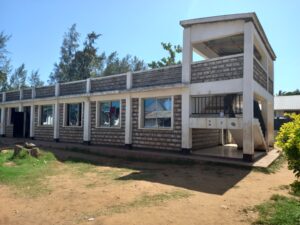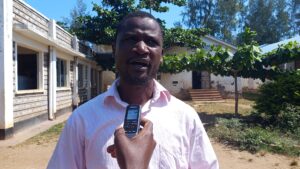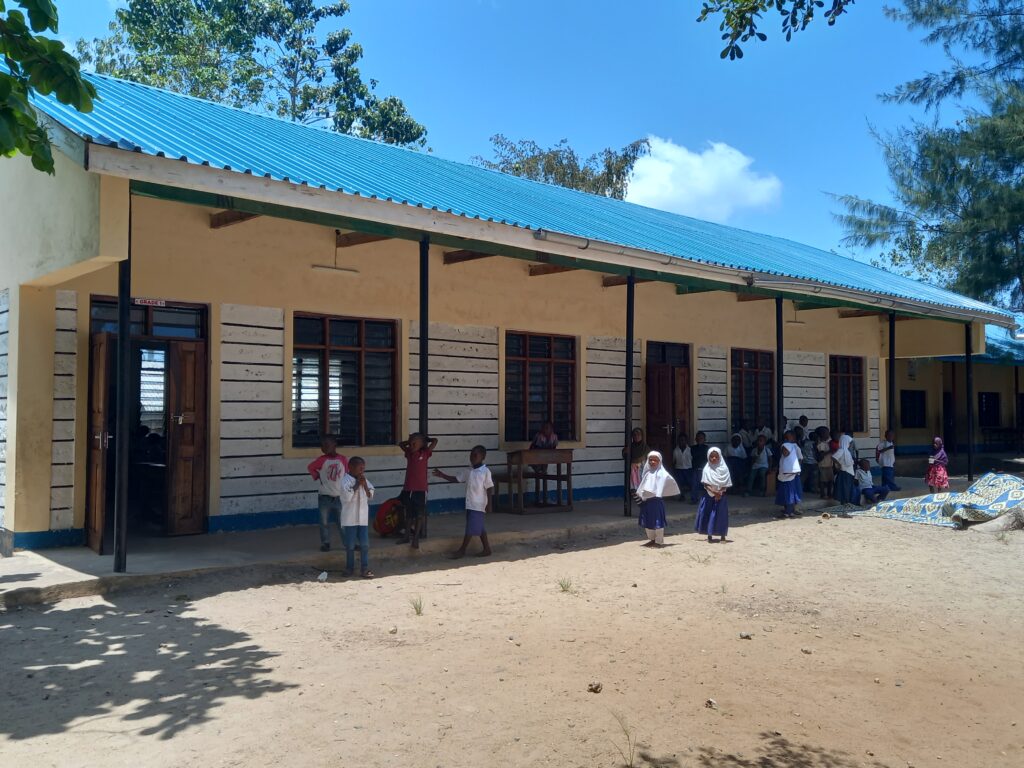BY SHABAN OMAR
In recent years, the state of education in several Kwale schools has seen steady improvement, marked by significant transformations that have reshaped the academic landscape into a more hopeful and promising one.
A major driver behind this positive change has been Base Titanium, an Australian mining company operating in the region.
Acknowledging the pivotal role education plays in fostering community development, Base Titanium has made substantial investments in constructing modern classrooms in various schools across Kwale.
These upgraded facilities have not only created a more conducive learning environment for students but have also ignited a sense of renewed enthusiasm among teachers and the local community, strengthening their commitment to academic progress.
The modern classrooms, equipped with better furniture and learning materials, have replaced old, dilapidated structures that once hindered effective learning.
As a result, student attendance and performance have shown noticeable improvement.
Moreover, the new infrastructure has attracted more qualified teachers to these schools, further enhancing the quality of education.
The involvement of Base Titanium has also encouraged other stakeholders, including local leaders and parents, to take a more active role in supporting and sustaining educational initiatives.
As these changes take root, the future of education in Kwale is becoming brighter, offering hope and opportunity to many young learners who now have access to the quality education they deserve.
At Chigombero Primary and Junior Secondary School, the atmosphere is one of joy and optimism, especially among the youngest learners in the Early Childhood Development Education (ECDE) program.
Every day, as the students take a sip of the warm porridge provided through the county government’s school feeding program, their smiles reflect not just the comfort of a full stomach but also a deep sense of pride in their surroundings.
This pride stems from the dramatic improvements in their learning environment.
Base Titanium constructed, three modern classrooms, a kitchen, offices and toilets .
Previously, overcrowding was a significant challenge, with too many students crammed into a few small classrooms.
According to Chigombero Primary and JSS Headteacher Ruwa Banda, the lack of space made it difficult for teachers to manage their classes effectively, and the quality of education suffered as a result.
“Before this project students struggled to focus, and learning activities were often disrupted by the cramped conditions,” he said.
However, the recent construction of modern classrooms has transformed this situation entirely.
He said the new spaces are bright, airy, and well-equipped, allowing students to spread out and engage more actively in their lessons.
Teachers now have the room they need to conduct their classes efficiently, and the overall learning experience has vastly improved.
Banda said the young learners also have comfortable toilets as opposed to before when they had to use toilets meant for Primary school which posed a huge risk.
“They used to share toilets which was not right since these are very young,” he said.
Chigombero ECDE Headteacher Jane Mali said the new changes have brought about a renewed sense of hope for the children’s future.
She said young learners no longer see school as a place of discomfort and frustration but as a nurturing environment where they can thrive academically and socially.
Mali said students enrolment for the ECDE improved by a huge percentage because new classrooms offer space for more accommodation.

Currently leading, the ECDE population stands at 179, comprising 101 boys and 78 girls.
A few kilometers away from Chigombero, at Mshiu Primary School, the students are also reaping the benefits of Base Titanium’s commitment to improving education in the region.
The company constructed two new blocks specifically for the ECDE and Grade One students.
The modern classrooms have also brought a wave of positive change to Mshiu Primary.
Before the construction, the youngest students had to make do with inadequate facilities that were often overcrowded and poorly equipped.
The school’s Deputy Headteacher Sofia Manga said previoulsy learning was a challenge especially with the implementation of the CBC.
She saidthe lack of space and resources hindered both students and teachers since they had to share classrooms.
Manga said with the new blocks in place, the learning environment has been completely transformed.
“The classrooms are spacious, well-lit, and designed to meet the specific needs of early learners. This has not only made it easier for teachers to engage with their students but has also created a more stimulating and enjoyable environment for the children,” she said.
Manga also noted that performance has improved since children are more eager to participate in class activities.
She said children find pride in learning in glass windowed classrooms and feel motivated.
“The new facilities have given them a sense of pride and belonging, encouraging them to take their education seriously from an early age,” she said.
At Msambweni Secondary School, the recent construction of a new dormitory has brought a wave of relief and happiness among the students.

The new facility, with the capacity to accommodate 150 students, marks a significant improvement in the school’s infrastructure and has had a profound impact on the students’ daily lives.
Before the dormitory was built, the situation at the school was far from ideal.
According to the School Deputy Principal, Andrew Wetoto, some students were forced to sleep in classrooms at night due to the lack of adequate boarding facilities.
This arrangement was far from comfortable and took a toll on the students’ well-being.
“The makeshift sleeping quarters were cramped and lacked proper bedding, leading to restless nights and leaving the students exhausted the next day,” said Wetoto.
He said the strain of having to convert their learning spaces into sleeping areas every evening was not only tiresome but also disrupted the students’ ability to concentrate and perform well in their studies.
He, however said now students have a dedicated space where they can rest comfortably and recharge for the next day’s studies.
Wetoto said the school enrolment risen from 450 to 600 since more students can be accommodated in boarding facility.
Lunga-Lunga Community Development Agreement Committee Secretary Bijuma Omar said, Base Titanium’s normally cedes one percent of its annual revenue to community projects as part of fulfilling the 2016 Mining Act.
The CDACs were established in 2021 around the Mining affected communities in Likoni, Msambweni and Lunga-Lunga sub-counties.

The Lunga-Lunga CDAC receives sh21.75 Million each year for community projects.
Omar said the CDACs have played a pivotal role in transforming local life in Kwale and surrounding areas since the financial commitment has fueled a wide range of projects aimed at improving the quality of life for residents in the region.
She said the committees have been instrumental in identifying the most pressing needs of their communities and ensuring that the funds are used effectively.
Omar said projects supported by CDAC funding have ranged from the construction of modern classrooms, dormitories, roads, halls, markets, cattle dips, desks and healthcare facilities among others.


